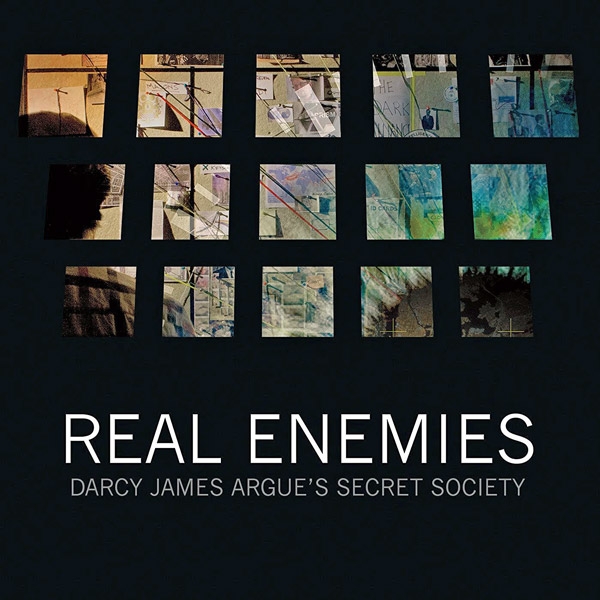| Columns Retired Columns & Blogs |
Great as always! FK.

The CD of Real Enemies (his third album, all of them on the New Amsterdam label) is out now, and having now taken those extra listens, I can drop the "maybe" from my earlier assessment: it is an oddball masterpiece—a major step up for Argue, who had already secured a place as one of the top big-band composers of our time, and a bold step toward a thrilling new direction for big-band jazz.
Its main theme is conspiracy theories, as a symptom of the unease of modern life and as a constant thread throughout American history, which has been driven, more than any other country, by modernity's giddy propulsion. The music is composed in 12-tone technique, which has its roots in the unsettlement of World War I—not a promising premise for a jazz piece, you might think, but Argue weaves it through dark-swing melodies (the 12-tone soundtracks of such '70s films noirs as The Parallax View and The Taking of Pelham 1, 2, 3 were inspirations), electro-funk, Latin street streaks, and the more brooding aspects of his elders: Ellington, Bob Brookmeyer, George Russell, and to some extent Maria Schneider (those Hendrix-ish guitar breaks have antecedents in her first album).
This is creepy fun soulful shiversome stuff.
I wondered, in my post last year, how he managed this bizarre compelling fusion, something I couldn't figure out at first listen ("there's too much going on," I wrote, "aurally and visually"). I still don't quite know how he did it, but he did it, I can tell you that.
Real Enemies is also Argue's best-sounding CD. Brian Montgomery, who also engineered Argue's second album, Brooklyn Babylon, was again at the helm, and the results are more dynamic, detailed, articulate, and spacious in all dimensions. (My only qualm is that brass tutti are a bit thin and bright, but they're neither frequent nor irritating.) Perhaps it's because MSR Studio A, where Real Enemies was laid down, is more spacious than Avatar Studio C, the site of Babylon, allowing more isolation of the woodwinds in particular.
Then again, Maria Schneider's The Thompson Fields, which Montgomery recorded at Avatar C, sounds better, fuller, than either album, so maybe not, though Schneider did have a much bigger budget for post-production tweaks. It might also simply be that Argue's 18-piece band, Secret Society, is getting tighter and better balanced.
I should also credit the mastering engineer, Randy Merrill, for seamlessly interweaving the music with archival sound clips (bits from Cold War movies and documentaries, readings from Richard Hofstadter's The Paranoid Style in American Politics, and more recent footage from the Snowden affair).
All in all, a original, even brilliant piece of work.


Interestingly, when I first read this article earlier today I looked them up on Tidal and played a couple of tracks before I had to be somewhere. Just now, I sat down to listen to some more and Tidal informed me that this artists work was no longer available. I did like what little I heard earlier, but I will not be $purchasing$ this artists music without a bit more airplay (which today is streaming of course). Why should I? Too many other artists who do allow their work on Tidal...